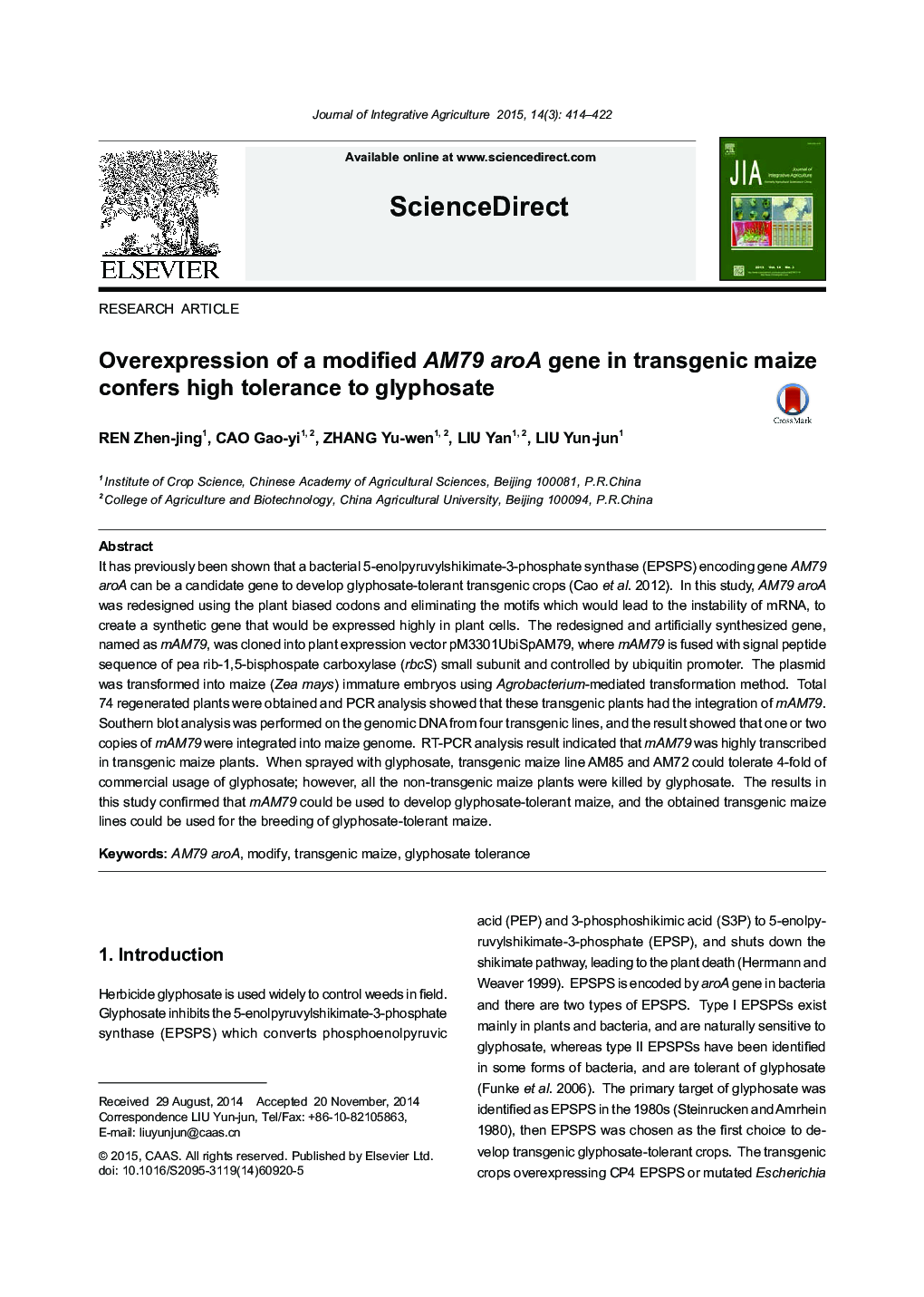| Article ID | Journal | Published Year | Pages | File Type |
|---|---|---|---|---|
| 4494228 | Journal of Integrative Agriculture | 2015 | 9 Pages |
It has previously been shown that a bacterial 5-enolpyruvylshikimate-3-phosphate synthase (EPSPS) encoding gene AM79 aroA can be a candidate gene to develop glyphosate-tolerant transgenic crops (Cao et al. 2012). In this study, AM79 aroA was redesigned using the plant biased codons and eliminating the motifs which would lead to the instability of mRNA, to create a synthetic gene that would be expressed highly in plant cells. The redesigned and artificially synthesized gene, named as mAM79, was cloned into plant expression vector pM3301UbiSpAM79, where mAM79 is fused with signal peptide sequence of pea rib-1,5-bisphospate carboxylase (rbcS) small subunit and controlled by ubiquitin promoter. The plasmid was transformed into maize (Zea mays) immature embryos using Agrobacterium-mediated transformation method. Total 74 regenerated plants were obtained and PCR analysis showed that these transgenic plants had the integration of mAM79. Southern blot analysis was performed on the genomic DNA from four transgenic lines, and the result showed that one or two copies of mAM79 were integrated into maize genome. RT-PCR analysis result indicated that mAM79 was highly transcribed in transgenic maize plants. When sprayed with glyphosate, transgenic maize line AM85 and AM72 could tolerate 4-fold of commercial usage of glyphosate; however, all the non-transgenic maize plants were killed by glyphosate. The results in this study confirmed that mAM79 could be used to develop glyphosate-tolerant maize, and the obtained transgenic maize lines could be used for the breeding of glyphosate-tolerant maize.
